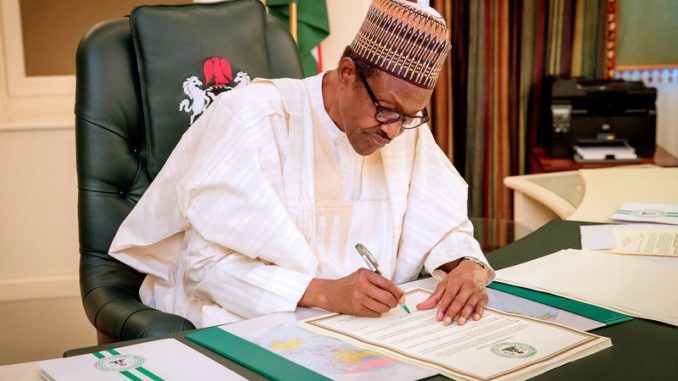
The President Muhammadu Buhari-led Federal Government reportedly claimed last week that it had achieved increase in generation, transmission and distribution chains of the power supply, thereby ensuring incremental power. Minister of Power, Works and Housing, Mr. Babatunde Fashola, who was reported to have made this assertion at a press briefing in Abuja to mark his third year in office, was reported to have said: “With regard to power, we have improved on what we met by increasing generation from 4,000 megawatts to 7,000 megawatts; transmission from 5,000 megawatts to 7,000 megawatts and distribution from 2,690 megawatts to 5,222 megawatts”.
Since the minister reeled out these obviously amazing and unrealistic figures, many electricity consumers have described government’s claim as unbelievable. If government truly cares for the people, it should not be publicizing figures that certainly do not reflect real situation on ground just because it wants to score cheap political points ahead of 2019.
Government should realise it has offended sensibilities of millions of Nigerians who due to its failure to deliver on its campaign promise on power sector, has created millions of electricity consumers without access to electricity supply. This is largely due to failure of the service providers – DISCOS and GENCOS, to provide electricity consumers satisfactory service.
It was easy for the minister to claim electricity generation had risen from 4,000 megawatts to 7,000 megawatts in three years but has this led to significant improvement in service delivery? The fact that national economy is seriously gasping for breath and could return to recession, more manufacturing firms are either relocating to neighbouring countries or closing down resulting in loss of jobs and rise in rate of criminality, while there is no enabling environment for domestic and foreign investments to thrive, is clear indication that power which is main engine driving the economy, has performed below expectations. If the figures disclosed by the minister are genuine, there is no justification for the on-going epileptic electricity supplies across the country. For greater part of this year so far, there have been a lot of power outages that have grounded businesses and other essential activities.
Since 2015 that the sitting administration came into office, power generation has been hovering around 3,500-4,000 megawatts while there were instances it tumbled to 2,500 megawatts. Vice-President, Professor Yemi Osinbajo once assured that target of 7,000 megawatts would be achieved in 2017 but this was not realised. President Buhari had also assured that 10,000 megawatts would be achieved by 2019 but the worsening electricity supply situation does not give Nigerians hope that this target would be attained.
Since the administration of late President Umaru Musa Yar’Adua through that of former President Goodluck Jonathan, promises of target of 10,000 megawatts remained unfulfilled in spite of humongous funds reported to have been injected into the corruption-ridden power sector annually over the years. The scandalous $16 billion administration of former President Olusegun Obasanjo reportedly spent on the power sector in eight years remains a controversial subject. President Buhari is yet to walk the talk following his recent outburst over the handling of the $16 billion power project by Obasanjo’s administration.Failure to probe successive administrations over handling of various power projects and punish those found culpable, is responsible for increasing rot in power sector.
Nigeria’s problem is government’s failure to take holistic look at age-long challenges bedevilling the power sector with a view to finding lasting solution to them. Problems rocking the power sector may not abate unless government musters the political will to finally review the controversial privatisation of the power sector which since private investors bought the defunct PHCN assets worth N480 billion, electricity supply has deteriorated significantly. So far, they have demonstrated they lack technical skill, experience and funds to perform.
There was a time they were provided N701 billion bailout. In July 2018, government planned to invest N72 billion for procurement and installation of equipment to assist DISCOS in distribution of unused 2,000 megawatts of stranded electricity. How could there be unused or stranded electricity when there are millions of Nigerians without access to power supply? No wonder World Bank had ranked Nigeria 182 of 189 economies on ease of accessing electricity worldwide.
Also, Regional Vice-President of Russian State Nuclear Energy Corporation (Rossaton) for sub-Saharan Africa. Viktor Polikarpov, has warned government to adopt alternative energy sources such as wind, solar, hydro and nuclear power complement to combat Nigeria’s worsening electricity problems. Pre-paid meters for which government provided DISCOS funds to buy and make available to consumers free of charge are not available.
We implore government to pay serious attention to challenges militating against increased electricity generation, transmission and distribution to reduce drastically, number of Nigerians without access to electricity supply. Also, issues connected with pre-paid meters, estimated billings, illegal disconnections and poor service delivery by service providers, deserve urgent attention.
END

Be the first to comment